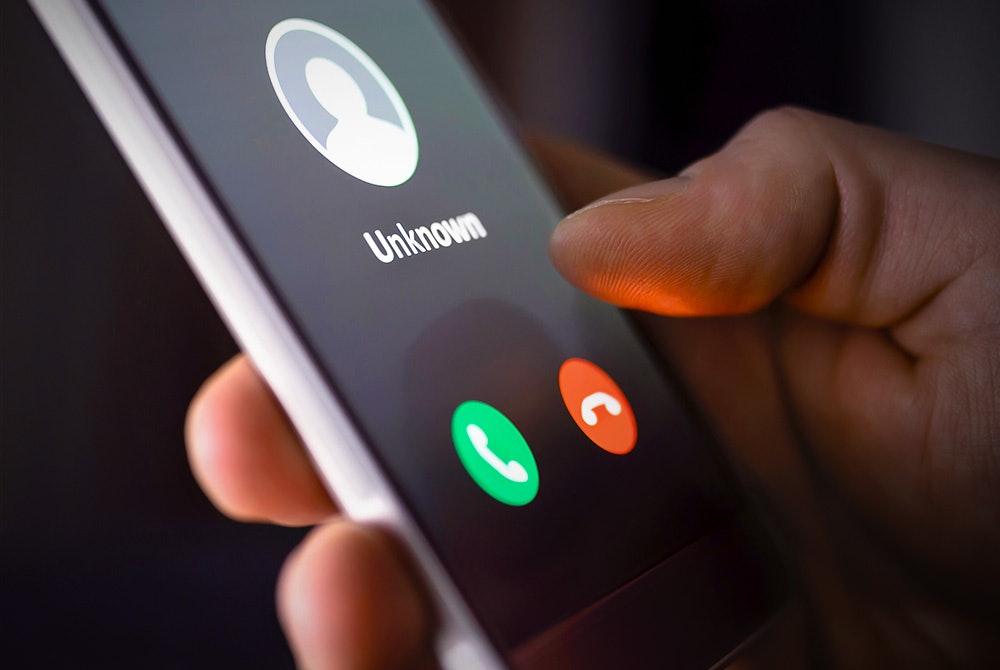- The Federal Trade Commission
- National Center for Disaster Fraud
- Federal Communications Commission (FCC)
- Local Authorities
- The Company Being Impersonated
- What To Do If You Receive A Scam Call
- Do Not Call Registry
- What To Do After Falling for a Phone Scam
Who you report phone scams to depends on the type of phone scam you receive. Generally, reporting them to government agencies may not help you get your money back, but it's still important as it helps them stop scams on a broader scale.
The Federal Trade Commission
The Federal Trade Commission (FTC) is where most types of scams are reported. Making a report with the FTC is your best option if you are unsure what kind of scam is being attempted, but you have relevant information about the scammers.
The FTC will not be able to get your money back directly. However, they do:
- Conduct investigations
- Work with law enforcement
- Sue companies or people that break the law through scams
- Develop rules
- Stop unfair, deceptive, or fraudulent practices
Report a phone scam to the FTC:
- Call: 1 877-382-4357
- Online
National Center for Disaster Fraud
If you receive scam phone calls that pertain to COVID-19, earthquakes, floods, or other natural disasters, you should report them to the National Center for Disaster Fraud. This organization focuses specifically on scammers who try to take advantage of people suffering from national disasters.
Report a phone scam to the National Center for Disaster Fraud:
- Call: 866-720-5721
- Fax: 225-334-4707
- Fill out their online NCDF Disaster Complaint Form
This organization will sort through the claims and decipher which ones should be sent to federal, state, or international law enforcement for further investigation.
Federal Communications Commission (FCC)
If you notice the caller ID is not matching who is calling, you should report it to the Federal Communications Commission. To make a report:
- Call: 1 888-225-5322.
- File a complaint online
Local Authorities
If you are scammed out of money or information, it is essential that you also report it to your local authorities.
Although you may not get the money back right away, it is best to have a police report filed for your records. Then in the future, if you have more issues with identity theft or scams, you already have a record of when and how it started.
You can contact your local police department and your state’s consumer protection office to make a report.
The Company Being Impersonated
When a scammer calls you and claims to represent a business, it may also be beneficial to reach out to the company to let them know someone is representing them without permission. It is possible that when a company is more aware of scams happening in their name, they will put in the effort to investigate and stop it.
What To Do If You Receive A Scam Call
If you are suspicious of a call and think it could be a scam:
- Don’t give out any of your personal information
- Hang up the phone
- Look up the number of the company or organization and give them a call yourself
Many scammers will try to impersonate your bank or credit union to trick you into giving them access to your money. Be aware of the signs of these phishing scams to keep your bank account safe.
Do Not Call Registry
Robocalls and telemarketers may not necessarily be scams, but they can call so often they become a distraction. You can report these callers to the Do Not Call Registry, which the Federal Trade Commission runs.
You can add your phone number to their Do Not Call Registry for free. This will add your name to a do not call list for telemarketers and robocalls. If you are still receiving telemarketing or robocalls 31 days after registering, they urge you to reach out to them and let them know. However, they warn that you may still receive calls from debt collectors, charities, political groups, and surveyors.
You can register online and pick one of three options:
- Report Unwanted Calls
- Verify Your Registration
- Register Your Phone
If there is a possibility you may have already signed up, you can check by using the “Verify Your Registration” option. New users should choose the “Register Your Phone” option.
From there, you will be asked to register up to three phone numbers. You can do a home number or a cell number. It will also ask for an email, which they will send a verification email to after you submit. Once you click the link in the verification email, your phone number will be added to the registry.
What To Do After Falling for a Phone Scam
If you didn’t realize it was a scam call until after you gave them your information, you need to act quickly to minimize the scam's effects:
- Place a fraud alert: If you gave out any banking information or sensitive information like your Social Security numbers, you should contact the three major credit bureaus to put an alert on your credit.
- Report the scam: You should report the phone scam to one of the above organizations based on what kind of call you received.
- Change your passwords: If you gave out any passwords, you should change them immediately because there is no telling when they will try to log in. This is especially important if you use the same password on multiple accounts.
- Contact your bank: If you gave away your bank or credit card information, you should be vigilant of your bank account activity and report the incident to your bank. Your bank is the best option to get your money back as they can:
- Reverse the charges
- Give you a refund (depending on their fraud policy)
- Cancel your accounts/cards so no further fraud can occur


Comments